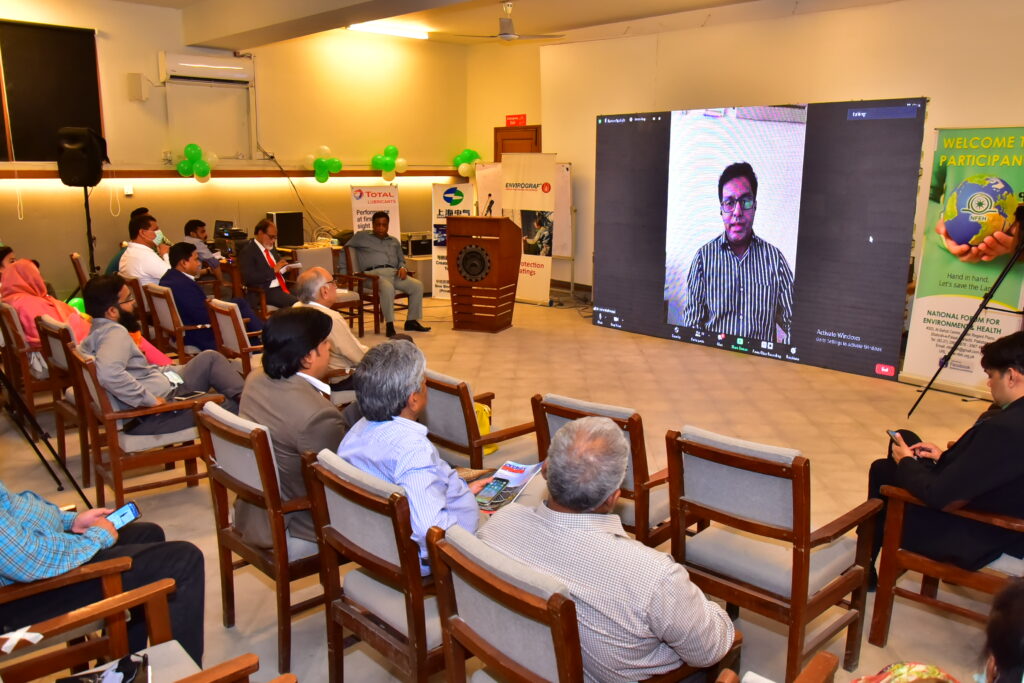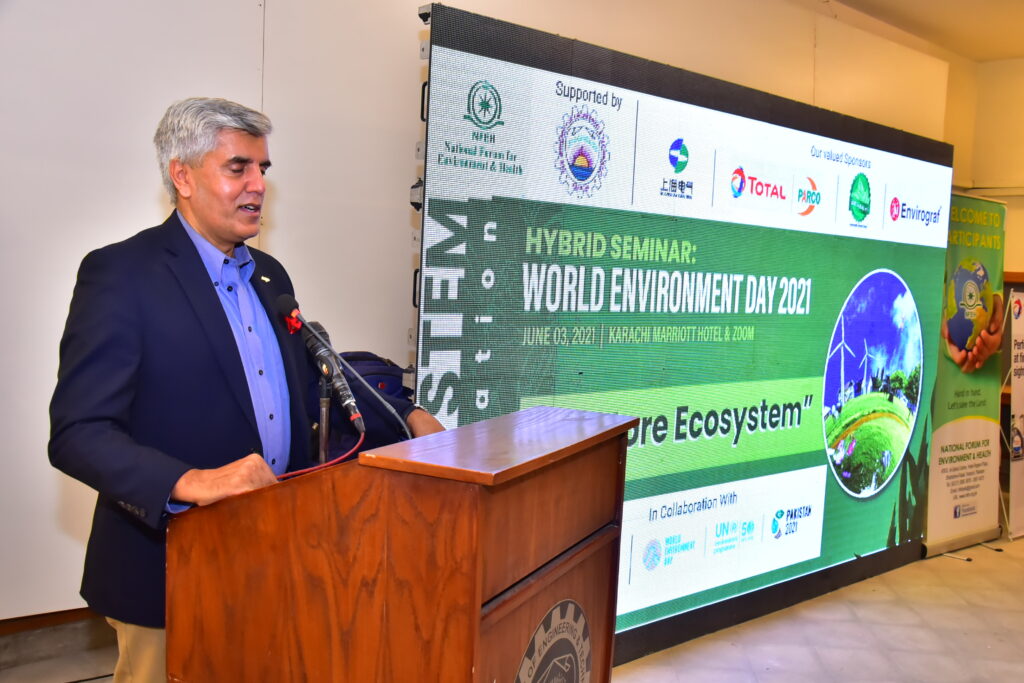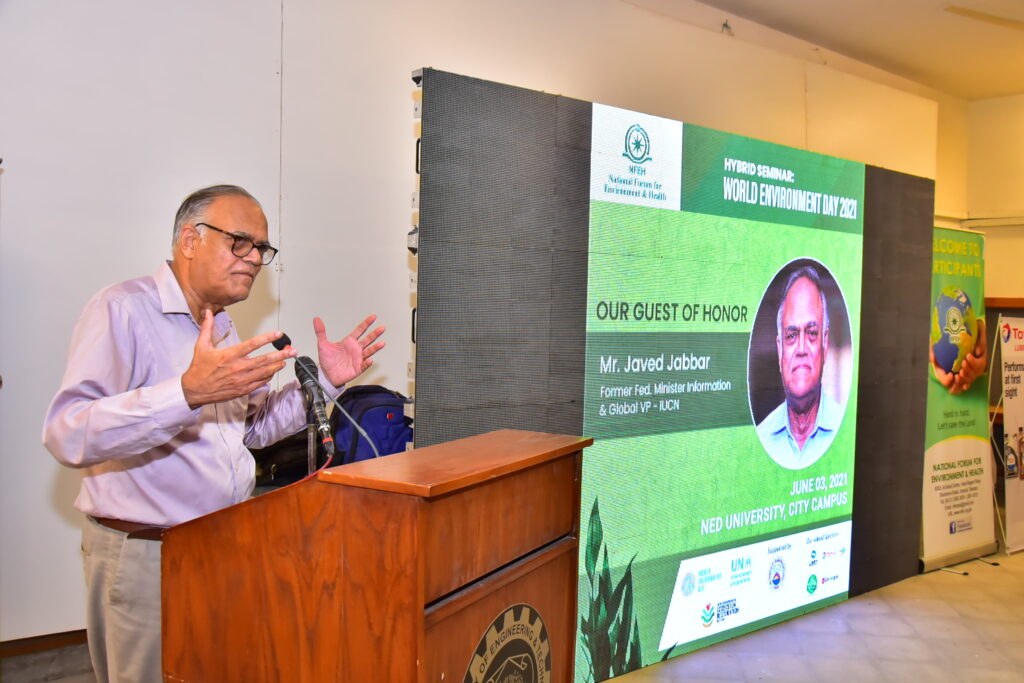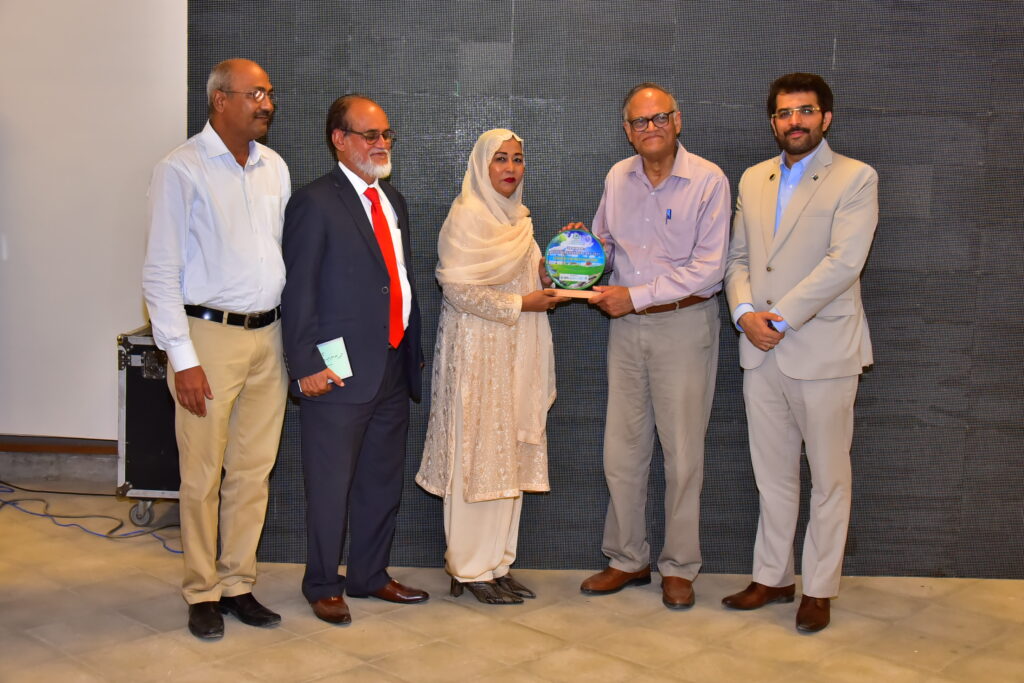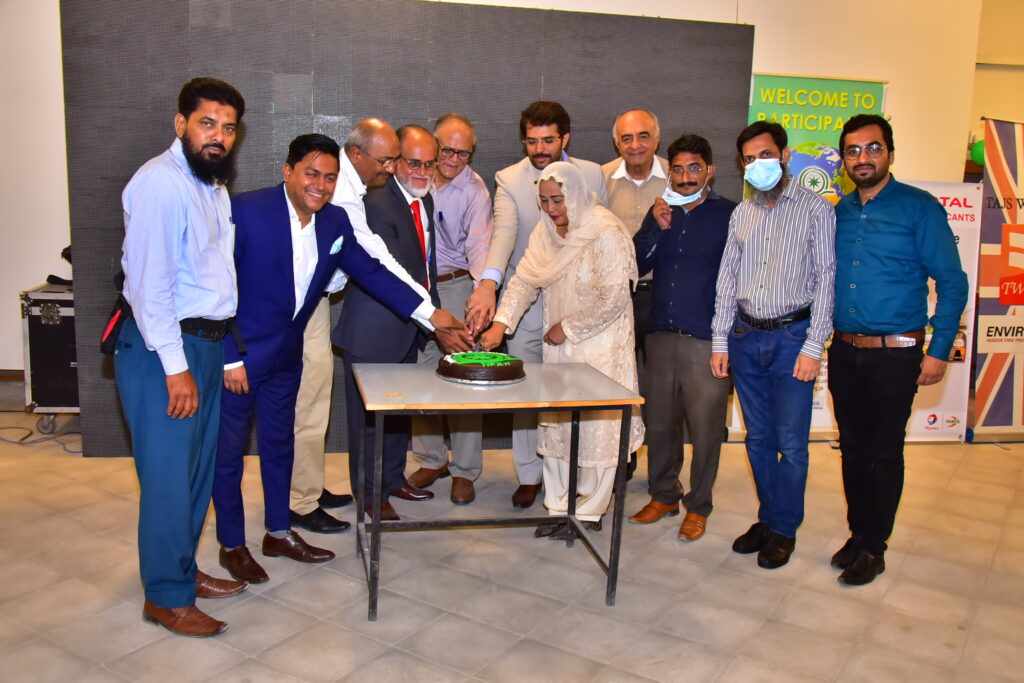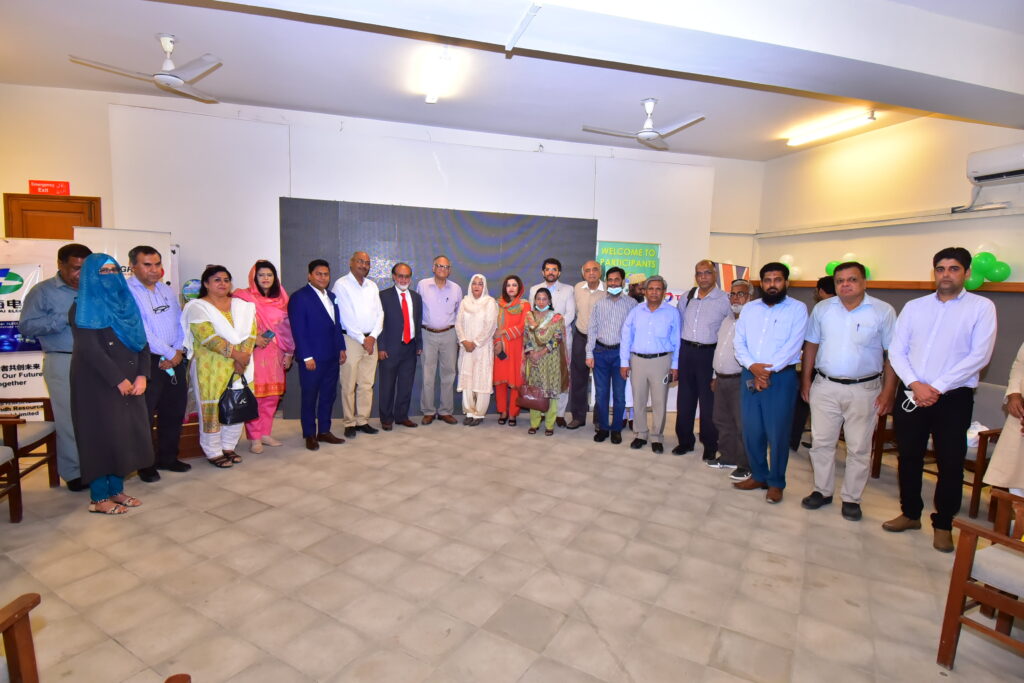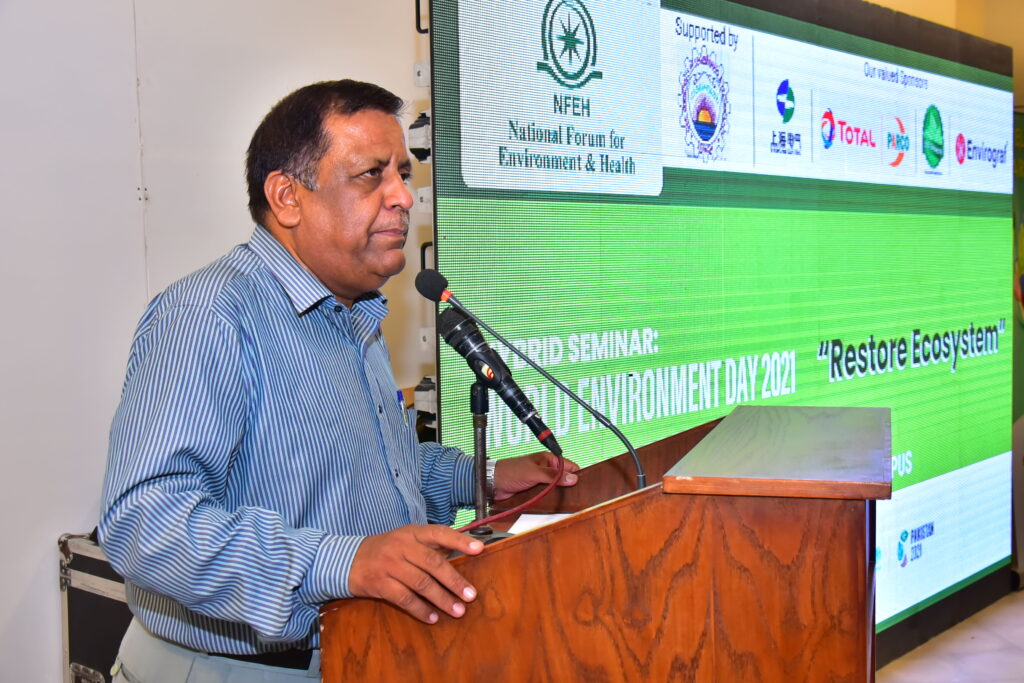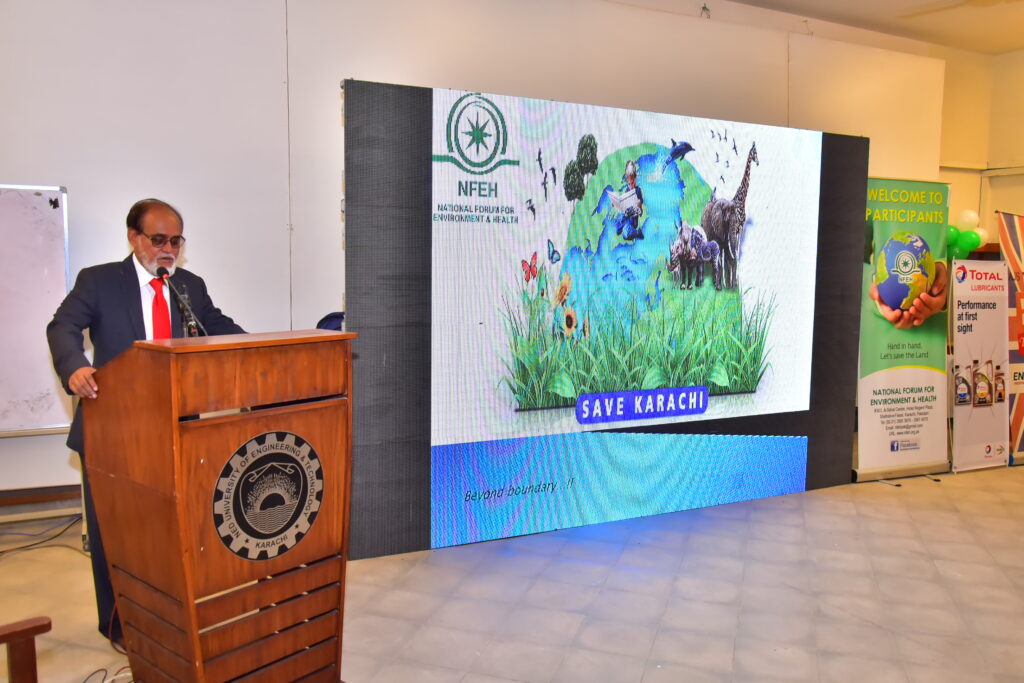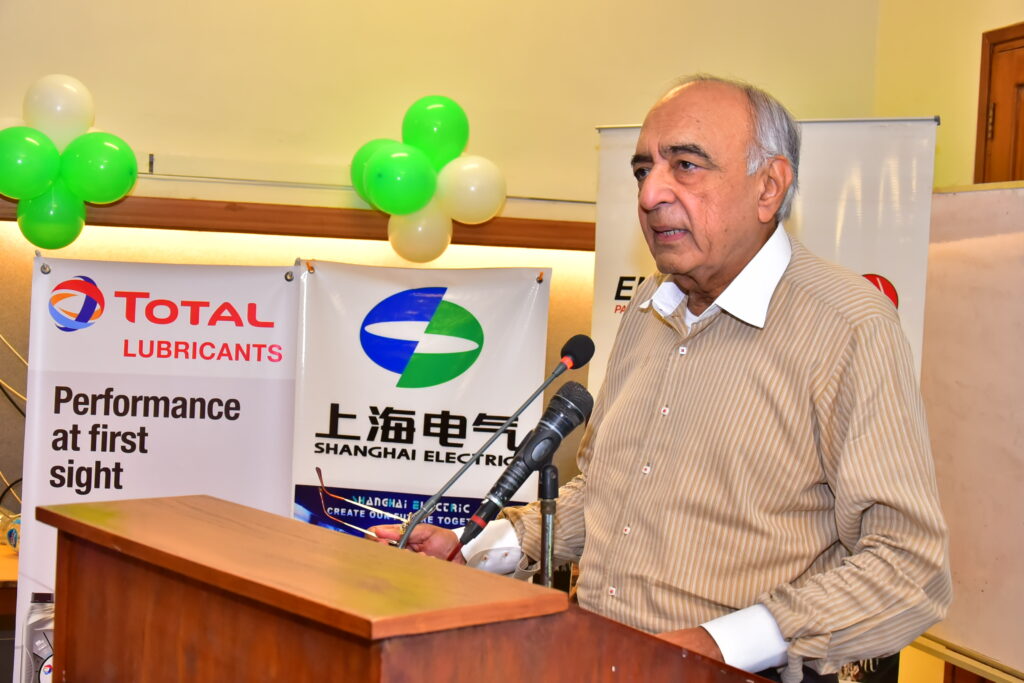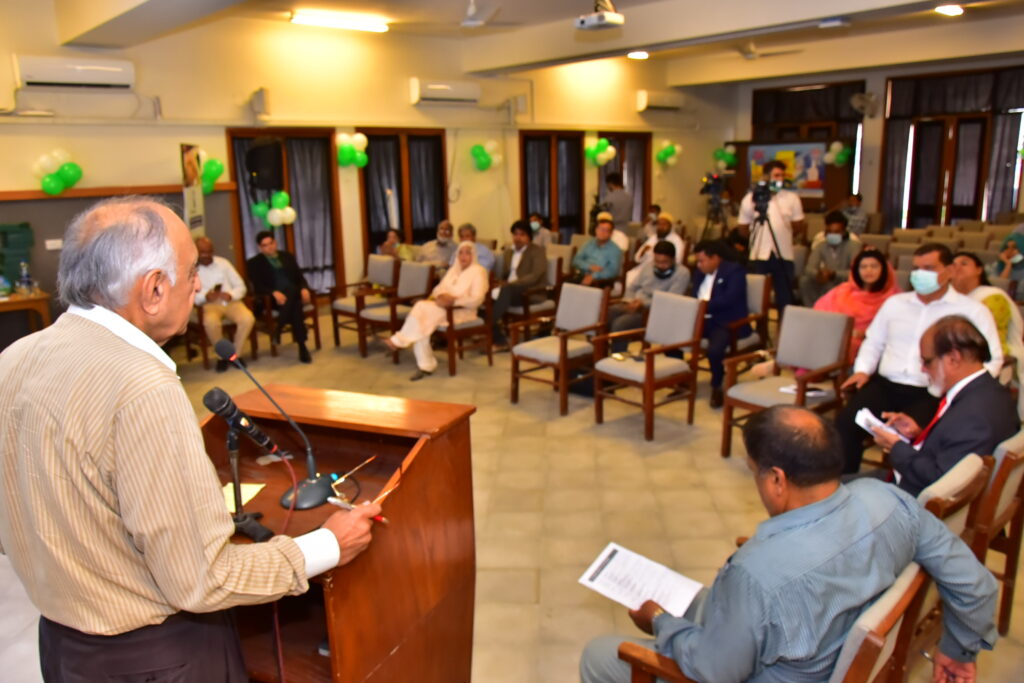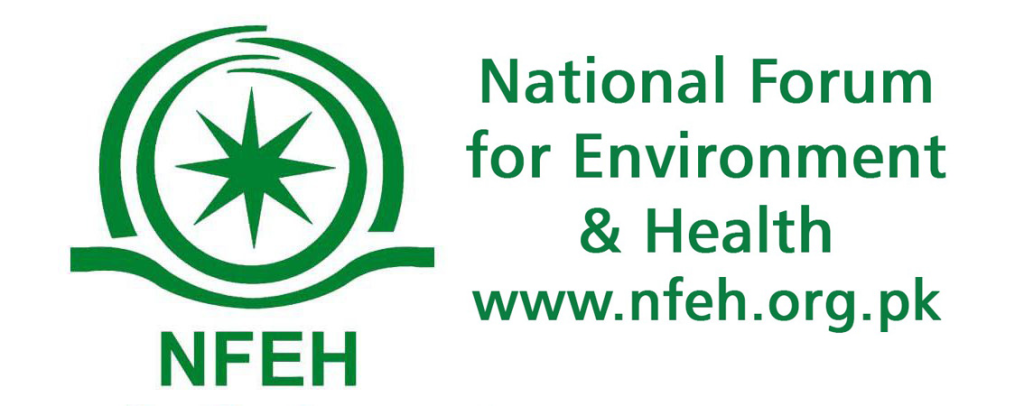Less than one per cent of wastewater generated in Pakistan treated causing much harm to environment
Karachi
The environmental law has been existing in Pakistan for the last 24 years but even then, less than one per cent of wastewater generated in the country is treated before its discharge causing much environmental damage especially to the water bodies.
This was one of the facts highlighted by the speakers at a seminar organised by the National Forum for Environment and Health (NFEH) in Collaboration with United Nation Environmental Programme and Event was supported by NED University, Total Parco Pakistan, EHS Services Pvt Ltd, Envirograf UK and Shanghai Electric to discuss environmental problems of Karachi and rest of the country on the eve of World Environment Day on June 5.
Speaking on the occasion, Dr Asim Mehmood, convener of the FPCCI Standing Committee on Environment, mentioned the example of Singapore where the wastewater was thrice treated before discharge.
He lamented the situation that much had not changed in Pakistan since 1997 when the first environmental protection law had been adopted in the country as the main causes of degradation of the environment still remained unchecked.
He said that there should be least reliance on fossil fuel while renewable energy resources should be actively exploited for power production as the most viable way to conserve the environment.
Former Federal Minister, Javed Jabbar, who was the chief guest on the occasion, appreciated the salience given by Prime Minister Imran Khan to the issue of environment as that was the first time in the history of Pakistan the country’s top leadership has so much focus on this problem.
He said that Pakistan had been chosen as the host country of this year’s World Environment Day in acknowledgement of its efforts to lessen the problem of environmental degradation.
He said that an independent audit had found that there was up to 80 per cent survival rate of the saplings planted under the billion tree tsunami programme carried out in Khyber Pakhtunkhwa.
He said that the high population growth rate had been the main cause behind many environmental issues in the country as housing facilities had to be built at the expense of the environment.
The former Federal Minister said that 20 million out-of-school children in Pakistan were such an alarming issue that Pakistan should adopt measures on an emergency basis to tackle the population problem.
Prof Dr Noman Ahmed, Dean of Architecture and Management Sciences at the NED University of Engineering Technology, said it was most unfortunate that the residential neighbourhoods had been built in Karachi at the expense of the city’s natural drainage system.
He said that every development activity had the potential to affect the environment.
He said that the development of infrastructure should be carried out fully responsive to the issues of climate change and environmental degradation.
He said the local government institutions at the grassroots level should be empowered to tackle the issues related to the environment.
Imran Taj, CEO of Envirograf UK, acknowledged that Pakistan had been on the right path to take the due corrective measures to improve the environment in the country.
He appreciated the personal efforts of PM Imran Khan to carry out a massive plantation drive in the country for the protection of the environment.
Nimra Hssain of Sindh Engro Coal Mining Company talked about the Thar million tree initiative of the Thar Foundation to improve environmental conditions in the desert areas of Sindh along with the project to extract underground reserves of coal for massive power generation.
She said the Thar Foundation had partnered with many like-minded organisations to carry out the massive plantation campaign in the desert area.
NFEH President Naeem Qureshi shed light on the activities of his non-governmental organisation to improve green cover in Karachi.
He said that owing to the efforts of the NFEH, several corporate establishments had actively participated in the tree plantation campaign to mitigate the problem of harmful industrial emissions.
On this occasion Head of Corporate HSEQ K-Electric Rehan Sajjad, Regional Coordinator Nazafat Pakistan Ali Asghar Quettawala, Anchorperson Shakil Khan, Secretary General NFEH Ruqiya Naeem, Sr. Vice President KCCI Saqib Goodluck also interacted with the audience.
